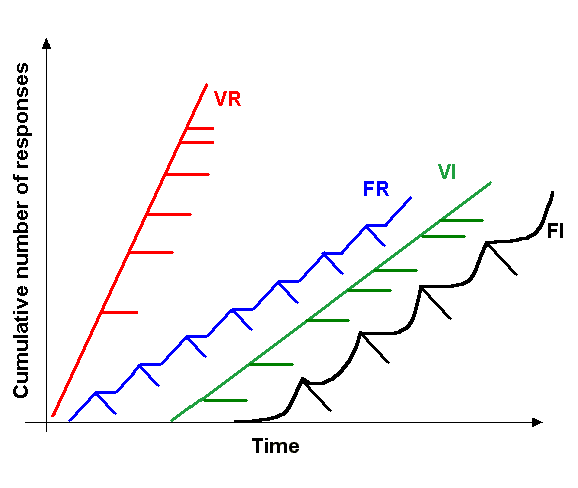|
Collective Narcissism
In social psychology, collective narcissism (or group narcissism) is the tendency to exaggerate the positive image and importance of a group to which one belongs. The group may be defined by ideology, race, political beliefs/stance, religion, sexual orientation, social class, language, nationality, employment status, education level, cultural values, or any other ingroup. While the classic definition of narcissism focuses on the individual, ''collective narcissism'' extends this concept to similar excessively high opinions of a person's social group, and suggests that a group can function as a narcissistic entity. Collective narcissism is related to ethnocentrism. While ethnocentrism is an assertion of the ingroup's supremacy, collective narcissism is a self-defensive tendency to invest unfulfilled self-entitlement into a belief about ingroup's uniqueness and greatness. Thus, the ingroup is expected to become a vehicle of actualisation of frustrated self-entitlement. In addition, ... [...More Info...] [...Related Items...] OR: [Wikipedia] [Google] [Baidu] |
Social Psychology
Social psychology is the scientific study of how thoughts, feelings, and behaviors are influenced by the real or imagined presence of other people or by social norms. Social psychologists typically explain human behavior as a result of the relationship between mental states and social situations, studying the social conditions under which thoughts, feelings, and behaviors occur, and how these variables influence social interactions. History Although issues in social psychology have been discussed in philosophy for much of human history, the scientific discipline of social psychology formally began in the late 19th to early 20th century. 19th century In the 19th century, social psychology began to emerge from the larger field of psychology. At the time, many psychologists were concerned with developing concrete explanations for the different aspects of human nature. They attempted to discover concrete cause-and-effect relationships that explained social interactions. In ... [...More Info...] [...Related Items...] OR: [Wikipedia] [Google] [Baidu] |
Intergroup Bias
In-group favoritism, sometimes known as in-group–out-group bias, in-group bias, intergroup bias, or in-group preference, is a pattern of favoring members of one's in-group over out-group members. This can be expressed in evaluation of others, in allocation of resources, and in many other ways.Aronson, E., Wilson, T. D., & Akert, R. (2010). ''Social psychology''. 7th ed. Upper Saddle River: Prentice Hall. This effect has been researched by many psychologists and linked to many theories related to group conflict and prejudice. The phenomenon is primarily viewed from a social psychology standpoint. Studies have shown that in-group favoritism arises as a result of the formation of cultural groups. These cultural groups can be divided based on seemingly trivial observable traits, but with time, populations grow to associate certain traits with certain behavior, increasing covariation. This then incentivizes in-group bias. Two prominent theoretical approaches to the phenomenon of ... [...More Info...] [...Related Items...] OR: [Wikipedia] [Google] [Baidu] |
Patriotism
Patriotism is the feeling of love, devotion, and sense of attachment to one's country. This attachment can be a combination of many different feelings, language relating to one's own homeland, including ethnic, cultural, political or historical aspects. It encompasses a set of concepts closely related to nationalism, mostly civic nationalism and sometimes cultural nationalism. Some manifestations of patriotism emphasize the "land" element in love for one's native land and use the symbolism of agriculture and the soil – compare ''Blut und Boden''. Terminology and usage An excess of patriotism in the defense of a nation is called chauvinism; another related term is '' jingoism''. The English word 'Patriot' derived from "Compatriot," in the 1590s, from Middle French "Patriote" in the 15th century. The French word's "Compatriote" and "Patriote" originated directly from Late Latin Patriota "fellow-countryman" in the 6th century. From Greek Patriotes "fellow countryman," f ... [...More Info...] [...Related Items...] OR: [Wikipedia] [Google] [Baidu] |
Social Projection
In social psychology, social projection is the psychological process through which an individual expects behaviors or attitudes of others to be similar to their own. Social projection occurs between individuals as well as across ingroup and outgroup contexts in a variety of domains. Research has shown that aspects of social categorization affect the extent to which social projection occurs. Cognitive and motivational approaches have been used to understand the psychological underpinnings of social projection as a phenomenon. Cognitive approaches emphasize social projection as a heuristic, while motivational approaches contextualize social projection as a means to feel connected to others. In contemporary research on social projection, researchers work to further distinguish between the effects of social projection and self-stereotyping on the individual’s perception of others. History The term social projection was first coined by Floyd Allport in 1924. The idea refers to t ... [...More Info...] [...Related Items...] OR: [Wikipedia] [Google] [Baidu] |
Recognition (sociology)
Recognition in sociology is the public acknowledgment of a person's Social status, status or :wikt:merit, merits (achievements, virtues, service, etc.). In psychology, excessively seeking for recognition is regarded as one of the defining traits of a narcissistic personality disorder. Another example of recognition is when some person is accorded some special status, such as title or classification. According to Charles Taylor (philosopher), Charles Taylor, recognition of one's identity is both a fundamental need and a right, and non- or misrecognition is a form of oppression. In the workplace, recognition has been suggested to increase employee engagement, continuous improvement behaviour, trust in the organization, intention to stay, and satisfaction with management. Others, like Alfie Kohn in ''Punished by Rewards'', point out the dangers of using praise to show recognition, since it may induce compliance in the short-term, but negatively impact quality in the workplace lon ... [...More Info...] [...Related Items...] OR: [Wikipedia] [Google] [Baidu] |
Respect
Respect, also called esteem, is a positive feeling or action shown towards someone or something considered important or held in high esteem or regard. It conveys a sense of admiration for good or valuable qualities. It is also the process of honoring someone by exhibiting care, concern, or consideration for their needs or feelings. Some people may earn the respect of individuals by assisting others or by playing important social roles. In many cultures, individuals are considered to be worthy of respect until they prove otherwise. Courtesies that show respect may include simple words and phrases like "Thank you" in the West or "''Namaste''" in the Indian subcontinent, or simple physical signs like a slight bow, a smile, direct eye contact, or a simple handshake; however, those acts may have very different interpretations, depending on the cultural context. Signs and other ways of showing respect Language Respect is a feeling of deep admiration for someone or something ... [...More Info...] [...Related Items...] OR: [Wikipedia] [Google] [Baidu] |
Social Influence
Social influence comprises the ways in which individuals adjust their behavior to meet the demands of a social environment. It takes many forms and can be seen in conformity, socialization, peer pressure, obedience (human behavior), obedience, leadership, persuasion, sales, and marketing. Typically social influence results from a specific action, command, or request, but people also alter their attitudes and behaviors in response to what they perceive others might do or think. In 1958, Harvard psychologist Herbert Kelman identified three broad varieties of social influence. #Compliance (psychology), Compliance is when people appear to agree with others but actually keep their dissenting opinions private. #Identification (psychology), Identification is when people are influenced by someone who is liked and respected, such as a famous celebrity. #Internalisation (sociology), Internalization is when people accept a belief or behavior and agree both publicly and privately. Morton Deuts ... [...More Info...] [...Related Items...] OR: [Wikipedia] [Google] [Baidu] |
Authority
In the fields of sociology and political science, authority is the legitimate power of a person or group over other people. In a civil state, ''authority'' is practiced in ways such a judicial branch or an executive branch of government.''The New Fontana Dictionary of Modern Thought'' Third Edition, Allan Bullock and Stephen Trombley, Eds. p. 115. In the exercise of governance, the terms ''authority'' and ''power'' are inaccurate synonyms. The term ''authority'' identifies the political legitimacy, which grants and justifies the ruler's right to exercise the power of government; and the term ''power'' identifies the ability to accomplish an authorized goal, either by compliance or by obedience; hence, ''authority'' is the ''power'' to make decisions and the legitimacy to make such legal decisions and order their execution. History Ancient history, Ancient understandings of authority trace back to Ancient Rome, Rome and draw later from Catholic (Thomism, Thomistic) thought and ... [...More Info...] [...Related Items...] OR: [Wikipedia] [Google] [Baidu] |
Positive Reinforcement
In behavioral psychology, reinforcement is a consequence applied that will strengthen an organism's future behavior whenever that behavior is preceded by a specific antecedent stimulus. This strengthening effect may be measured as a higher frequency of behavior (e.g., pulling a lever more frequently), longer duration (e.g., pulling a lever for longer periods of time), greater magnitude (e.g., pulling a lever with greater force), or shorter latency (e.g., pulling a lever more quickly following the antecedent stimulus). The model of self-regulation has three main aspects of human behavior, which are self-awareness, self-reflection, and self-regulation. Reinforcements traditionally align with self-regulation. The behavior can be influenced by the consequence but behavior also needs antecedents. There are four types of reinforcement: positive reinforcement, negative reinforcement, extinction, and punishment. Positive reinforcement is the application of a positive reinforcer. Negati ... [...More Info...] [...Related Items...] OR: [Wikipedia] [Google] [Baidu] |
Theodor W
Theodor is a masculine given name. It is a German form of Theodore. It is also a variant of Teodor. List of people with the given name Theodor * Theodor Adorno, (1903–1969), German philosopher * Theodor Aman, Romanian painter * Theodor Blueger, Latvian professional ice hockey forward for the Pittsburgh Penguins of the National Hockey League (NHL) * Theodor Burghele, Romanian surgeon, President of the Romanian Academy * Theodor Busse, German general during World War I and World War II * Theodor Cazaban, Romanian writer * Theodor Fischer (fencer), German Olympic épée and foil fencer * Theodor Fontane, (1819–1898), German writer * Theodor Geisel, American writer and cartoonist, known by the pseudonym Dr. Seuss * Theodor W. Hänsch (born 1940), German physicist * Theodor Herzl, (1860–1904), Austrian-Hungary Jewish journalist and the founder of modern political Zionism * Theodor Heuss, (1884–1963), German politician and publicist * Theodor Innitzer, Austrian Catholic car ... [...More Info...] [...Related Items...] OR: [Wikipedia] [Google] [Baidu] |
Narcissistic Personality Inventory
The Narcissistic Personality Inventory (NPI) was developed in 1979 by Raskin and Hall, and since then, has become one of the most widely utilized personality measures for non-clinical levels of the trait narcissism. Since its initial development, the NPI has evolved from 220 items to the more commonly employed NPI-40 (1984) and NPI-16 (2006), as well as the novel NPI-1 inventory (2014). Derived from the DSM-III criteria for Narcissistic personality disorder (NPD), the NPI has been employed heavily by personality and social psychology researchers. The NPI is not intended for use in diagnosing Narcissistic personality disorder. Rather, it is often said to measure "normal" or "subclinical" (borderline) narcissism (i.e., in people who score very high on the NPI do not necessarily meet all criteria for diagnosis with NPD). Psychometric properties The psychometric properties of the NPI have been continually investigated since its creation in 1979, both by original creators Raskin and ... [...More Info...] [...Related Items...] OR: [Wikipedia] [Google] [Baidu] |

_01.jpg)


